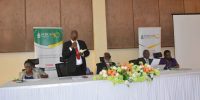The National Curriculum Development Centre hosted the 1st International Conference on 26-27 April 2023 at Speke Resort Kampala Uganda with the theme: Reconceptualising Curriculum in the 21st Century for Socio-Economic Transformation.
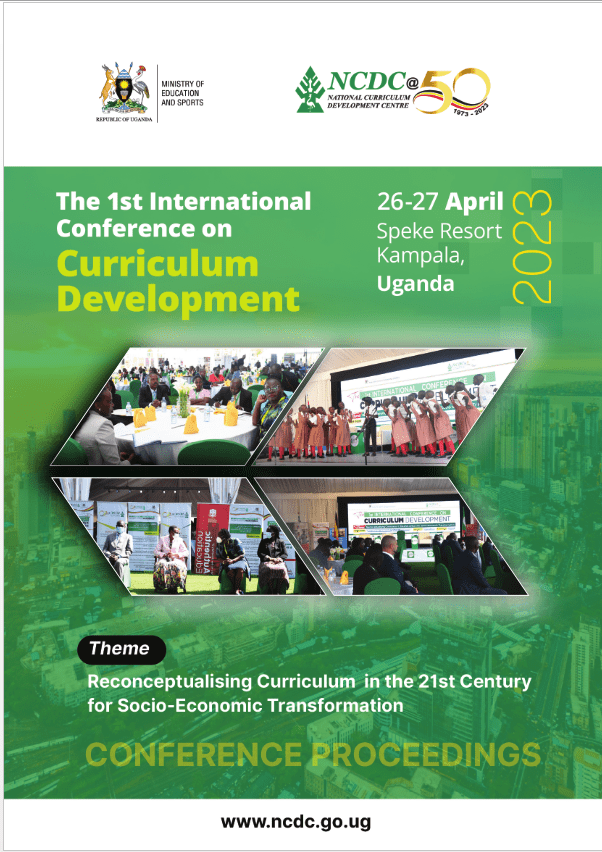
About the Conference
The ever-changing education environment and the labour market demands of the 21st century arising from ICT revolution, emerging of pandemics, climate change, gender and innovations have created challenges in the curriculum process. This calls for educationists to rethink how the curriculum should be designed and implemented to ensure the acquisition of the desired knowledge, skills, values and attitudes for social economic transformation.
Therefore, it is important for educationists across the globe to converge and discuss strategies for holistic learning to ensure the achievement of the desired competencies.
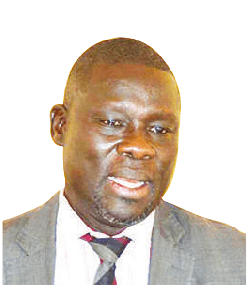
It is with great pleasure that I congratulate the National Curriculum Development Centre (NCDC) fraternity for having celebrated the Centre’s 50th anniversary. Among the activities prepared for the celebrations was the 1st International Conference on Curriculum Development. The conference theme, “Reconceptualising Curriculum in the 21st Century for Socioeconomic Transformation,” is timely and critical for the development of education in Africa. As we are all aware, a curriculum is at the centre of the teaching and learning process and has been viewed by some scholars like De Coninck (2008)1, as being at the centre of daily life and the responsibility of all stakeholders in the society as a whole. As key stakeholders of education in our respective spheres of operation, your participation in this discussion is very critical and timely considering that many countries in Sub-Saharan Africa, Africa and the world at large, are rethinking the design of curricula, with a view of equipping learners with the necessary skills and competencies to encounter the Volatile, Uncertain, Complex and Ambiguous (VUCA) world we live in today. The sub-themes of this conference were well thought through and took into consideration the complexities of the world today. As Chairperson of the NCDC (Uganda) Governing Council, I am confident that this book of conference proceedings will provide an excellent platform for the exchange of ideas, knowledge, and experiences among scholars, policymakers, and practitioners in the field of education. Together, we will critically examine and redefine the curriculum to meet the needs of the 21st century and contribute to socio-economic transformation in Africa. It is expected that by the end of the discussions and interactions, solutions to the challenges of the VUCA world will be realised. These will give an insight into the kind of curricula we should design for future generations.
Congratulations to NCDC on this remarkable achievement.
For God and my country

Director, NCDC
It is with great pleasure and joy that we celebrated 50 years of existence of the National Curriculum Development Centre (NCDC), Uganda. As we celebrated our Golden Jubilee, the 1st International Conference on Curriculum Development was held under the theme “Reconceptualising Curriculum in the 21st Century for Socioeconomic Transformation. The focus of the conference was timely and relevant, given the global challenges we face and emerging trends in the world today. It is important to discuss how to align Uganda’s curriculum with the ever-changing education environment and the labour market demands of the 21st century arising from the ICT revolution, the emerging pandemics, climate change, gender, and innovations. National Curriculum Development Centre appreciates all those who worked tirelessly towards the development and production of the book of conference proceedings. The book of conference proceedings includes the contributions of all those who presented during the conference. The papers for presentation and the discussions were vital in shaping the ongoing efforts to transform education in Uganda, Africa, and the globe. As we move forward, NCDC is committed to the development of a 21st-century curriculum that is responsive to the needs of our society. We recognise that the curriculum must be relevant, flexible, and dynamic to meet the demands of the digital age. Our strategic direction is to create a curriculum that promotes critical thinking, creativity, and innovation, and equips our young people with the skills and competencies required for the future workforce. Furthermore, we are committed to localising and decolonising the curriculum by ensuring that our young people learn about our rich cultural heritage and values. We also recognise the significant role of ICT in education and are exploring innovative ways to integrate technology into the curriculum. Finally, we believe that stakeholders’ involvement is crucial to the success of curriculum development and implementation. We are committed to engaging all stakeholders, including teachers, parents, students, policymakers, and the private sector, in transforming the education sector. As key stakeholders, we are eager to learn from your experiences which will provide an opportunity for us to explore better ways of reconceptualising the curriculum as we grapple with the need for socio-economic transformation.
In conclusion, I would like to thank all authors for the papers that were presented which were guided productive discussions and recommendations that will contribute to the transformation of education in Uganda and Africa.
For God and my country.

Editor-in-Chief, Deputy Director, Research
It is with great pleasure that I introduce this collection of papers from the 1st International Conference on Curriculum matters held by the National Curriculum Development Centre on 26th – 27th April 2023. The participants in this conference have demonstrated their commitment and scholarly rigour by offering insightful contributions and research findings to the field of curriculum development and education. My sincere gratitude goes out to the management of NCDC, whose vision and leadership have been crucial in shaping this publication. The quality of the papers in this volume is a testament to their exacting attention to detail and dedication to academic excellence. Additionally, I would like to express my gratitude to the editorial board members and reviewers for their diligent efforts and commitment in examining the submissions and offering insightful commentary to the authors. The outstanding quality and applicability of the papers included in this collection have been guaranteed by their knowledge and perceptions.
Finally, I would like to thank every author whose work has helped to make this publication possible. Your scholarship and research have been crucial to the development of our field, and I am sure that both researchers and educators will find great value in this collection.I hope that this publication will spur further research and cooperation in the field of curriculum development and education. I also look forward to witnessing our community’s continued expansion and influence.
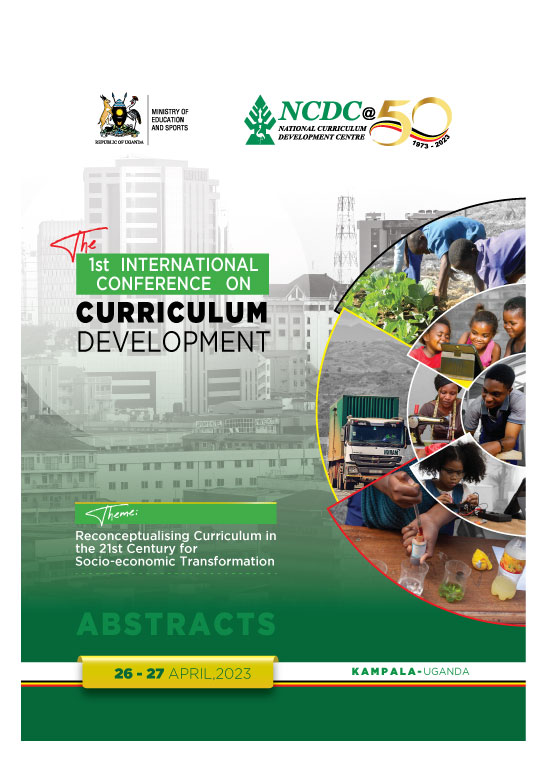
Abstracts Overview
The ever-changing education environment and the labour market demands of the 21st century arising from ICT revolution, emerging of pandemics, climate change, gender and innovations have created challenges in the curriculum process. This calls for educationists to rethink how the curriculum should be designed and implemented to ensure the acquisition of the desired knowledge, skills, values and attitudes for social economic transformation.
Sub-Theme 1: Competency Based Curriculum Development and Implementation
The Status of Implementation of the Reviewed Uganda Lower Secondary Curriculum: The Teachers’ Perspective
Mercy Barasa Chemutai1*, Proscovia Namubiru Ssentamu2, John K. Chang’ach1, Susan Kurgat1 Moi University, Kenya, 2Uganda Management Institute, Uganda * Corresponding author: [email protected]
Abstract
The Uganda Lower Secondary curriculum underwent critical review following concerns of an obsolete, subject-centred and examination-oriented curriculum that did not meet the 12st Century needs. Consequently, a competence-based curriculum (CBC) was developed and rolled out for implementation in January 2020. This paper presents the status of the implementation of the curriculum three years later by responding to the question: What are the concerns of Ugandan Secondary school teachers about the transition into the CBC? The Concerns-Based Adoption Model offers a theoretical framework through which the concerns of these teachers are analysed. A total of 383 teachers from selected Ugandan Government Secondary Schools were Interrogated regarding their experiences with the implementation of the CBC by use of a structured questionnaire. Their qualitative responses were compiled into a database and analysed using content analysis. Results indicate that the curriculum is perceived positively by majority of the teachers. The insufficiency of the instructional materials; Poor infrastructure; Large student to teacher ratios; Lack of access to technological devices and poor or no internet connection in most Secondary schools presents a serious bottleneck to the effective implementation of the Lower Secondary Curriculum. It is recommended that the Ministry of Education and its affiliate agencies resolve these issues in order to achieve the overall objectives of the reviewed Curriculum.
The Challenges and Strategies of Adopting Competency-Based Assessment by National Assessment Bodies: The Case of Uganda National Examinations Board
Florence Obong Capus1*, Muzaale1, Dennis Zami Atibumi2, 1Uganda National Examinations Board, 2Busitema University Tororo, Uganda * Corresponding author: [email protected]
Abstract
Lower secondary education in Uganda shifted from content-based to competency-based curriculum in 2020. The adoption of competency-based education is hampered by a mode of assessment that has traditionally placed a greater emphasis on memory than on critical and creative problem-solving. This study, covering 17 districts in five of the six UNEB regions of Uganda, employed quantitative research approach and cross-sectional survey research design to examine the extent to which the implementation of the lower secondary school curriculum could inform competency-based assessment of learning by UNEB. The study involved 491 learners randomly selected from secondary schools in the selected districts. These respondents completed the survey on Competency-based Learning (Ryan & Cox, 2016). The results of the study revealed generally high levels of belief in and understanding of CBA (M = 3.82; Min. = 0.00, Max. = 5.00; SD = 0.622), student progression through demonstration of mastery (M = 3.87; Min. = 0.00, Max. = 5.00; SD = 0.577), and flexible assessment (M = 3.91; Min. = 0.00, Max. = 5.00; SD = 0.618). Personalization (M = 3.42; Min = 0.00, Max = 5.00; SD = 0.620) and skills and disposition development (M = 3.13; Min = 0.00, Max = 5.00; SD = 0.734) were at moderate levels. We argue that the implementation of the competency-based curriculum seems to take the shape of the old cognitive-based curriculum such that it does not adequately prepare the learners for a terminal competency-based assessment of the curriculum. Based on the results, we recommend that the Ministry of Education and Sports and UNEB raise public sensitization on the need for the adoption of CBA in the lower secondary schools in the country.
Towards a Successful Development of School-Based Instructional Supervision Materials to Support Effective Competency-Based Curriculum Implementation in Zanzibar
Habibu Dadi AliUniversity of Dodoma-Tanzania Email: [email protected]
Abstract
The implementation of the Competency-Based Curriculum (CBC) among teachers in Tanzania and Zanzibar in particular remains an issue despite its functioning in schools for nearly seventeen years. In the absence of a supporting guide, school leaders feel less prepared to assist their teachers in implementing the CBC. For this reason, School-Based Instructional Materials (SB-ISMs) were developed by researchers in collaboration with potential users of the SB-ISMs (section leaders and head teachers) and experts. The goal was to provide school leaders with the means to support their teachers as they implement CBC. This article presents the main comments received from users and experts regarding the SB-ISMs developed. The practicality, effectiveness and validity of the developed content was evaluated by 33 section leaders, 15 head teachers, and 5 experts in the area of design- based research, educational management, and curriculum development through a semi-structured interview guide. The generated data were analysed using inductive thematic analysis protocol. The users’ and experts’ comments about the SB-ISMs covered four major themes namely; ensuring authentic content and reflective activities in the materials, having a logical sequence of SB-ISMs, using context-based facilitation skills and descriptive style of materials presentation, and using practical and hands-on activities for competence development. The involvement of a variety of experts and users contributes to the successful development of intervention materials in education. Therefore, it is recommended that the government, through Ministry of Education, Science and Technology, whenever it needs to develop any curriculum guide to be implemented in any educational institution, should involve experts and those who are going to use it in the real school milieu.
Implementation of Competency-Based Lessons in Class: Case Study: Luweero Region in Uganda
Sarah KobusingeMazzoldi College School– Nakaseke, Uganda Email: [email protected]
Abstract
This paper examines the implementation of competency-based lessons (CBL) in secondary schools in Uganda following the introduction of a competency-based curriculum in 2020. The study’s objective is to assess the impact of CBL on learners’ academic achievement and teachers’ teaching practices, focusing on the Luweero region of Uganda. The study involved 282 secondary school teachers from 84 government-aided and private schools. Over 10,000 learners were sampled from Nakaseke, Nakasongola, and Luweero between August 2022 and March 2023. Different subject teachers participated in focus group discussions (FGDs), and lesson observations were conducted to represent each discipline. Thematic coding was used to analyse the data, revealing that many teachers must be more adequately prepared for CBL and prioritise achieving intended learning outcomes. The study recommends providing teachers with more training and professional development opportunities to enhance their understanding and implementation of CBL. The themes from the data analysis included content coverage, tracking progress over three years, and managing learner activities during delivery time. The study highlights the need for continued efforts to support the successful implementation of competency-based education in Uganda.
The Implementation of the Learning Framework for Early Childhood Development (3–6 Years) in Pre-Schools in Uganda
Deborah R. K. Magera, Bernadette K. Nambi, Annet K. Nnakalyowa National Curriculum Development Centre
Abstract
The purpose of the needs assessment study was to find out if there are any gaps in the Learning Framework (LFW) for children of 3–6 years in Uganda and determine how these can be integrated. This was done through the objectives of the study that included soliciting views and perceptions from various stakeholders on the factors affecting the implementation of the Early Childhood Education (ECD) Learning Framework 3–6 years and possible solutions; establishing the local and global emerging issues in ECD education that need to be integrated into the Learning Framework for 3–6 year-old-children; and identifying gaps and best practices relating to the design, learning outcomes, competencies, development activities, teaching methods and assessment modalities of the LFW. The study adopted the cross-sectional research design, and was also descriptive in nature. To prevent the bias inherent in each method, the study included both qualitative and quantitative components. The study employed both probability and non-probability sampling designs using random sampling, as well as convenient and purposive sampling techniques, respectively. The sample size for the survey was 378 respondents, and 58 districts were selected using the Krejcie and Morgan (1970) and Yamane (1967) approaches. Quantifiable data from the survey was sorted, coded and then entered in Statistical Package for the Social Sciences (SPSS) version 22.0. The data was presented using tables, charts and bar graphs. Data was further analysed using descriptive statistics, tables with percentages and corresponding mean values. Qualitative data from document review, observation and interviews were sorted and compiled into response categories and sub-categories. The data was thematically coded by clustering similar responses together. It was concluded that the sampled teachers/caregivers have regularly been equipped with skills to implement the ECD LFW. However, guidance from the District Inspectors of Schools, DEOs and Coordinating Centre Tutors (CCTs) was inadequate to support the teachers/caregivers in using the LFW. The teachers/caregivers are not provided with ICT equipment (computers, smart TVs, smartphones, tablets) to use during the teaching and learning process, thus affecting the implementation of the LFW. The survey indicated that the LFW did not merge emerging issues like climate change into its content. The survey indicated that regarding the aspect of the teacher using the LFW, the design of the LFW does not provide clear guidance to the teacher. The survey indicated that there was limited focus on the competences of learners with special needs. The researchers, therefore, recommended that curriculum developers need to ensure that the needs of learners with special needs are catered for in the same proportions as those of normal learners to ensure inclusion. Using the LFW did not provide clear guidance to the teacher. This, therefore, needs to be catered for during the review, and there should be more emphasis on integrating ICT in the LFW. The researchers recommended that it is necessary to design the LFW in such a way that it is continuously responsive to emerging issues at all levels. The lack of information on emerging issues should be intentionally integrated into the LFW to enable the learners to access it. The researchers further recommended that the LFW should support teachers in understanding and implementing appropriate practices for these learners. The researchers finally recommended that there is need to create a curriculum framework as a source guide for the LFW.
Child to Child Pedagogy and Transition Readiness from Home Based Centres to Primary One
Adela Rucecerwa National Curriculum Development Centre
Abstract
The purpose of this study was to see how Child to Child pedagogy can be efficiently used so as to support transition readiness of preschool children from Home based centers to primary one through an innovative and cost-effective play way. Child to child pedagogy is an education practice about how children build knowledge as they relate with one another. In this pedagogy, older children from the locality known as young facilitators, take preschool children through interactive learning games over a period of one year to prepare them for early grades of primary school. Objectives of the study were: To establish whether child to child pedagogy could be used to enhance transition readiness in Early Childhood Education; To identify child to child activities that could be used to enhance transition readiness in Early Childhood Education. The study used cross sectional design, In-depth interviews, participant observation, focus group discussions with parents, document analysis and participant narratives supported triangulation. The overarching research question was: How can an effective child to child pedagogy be adopted and scaled up to improve transition readiness from pre-primary to early grades of primary school. Data was collected by the use of Questionnaires interviews and Observation method. The collected data was analysed by use of descriptive methods of data analysis. Results indicated that the advocated for methodology prepares children to be able to transit smoothly. In conclusion, from the findings of the study, use of child-to-child pedagogy enables children to get ready for transition through engaging in useful play with other community members with whom they may go to the same school when they transit. The researcher thus recommends that stakeholders should embrace child to child pedagogy so as to enable children’s transition readiness.
Sub-Theme 2: ICT Revolution in Education
Unpacking ICT Readiness and Students’ Preparedness for National Examinations During the COVID-19 Pandemic in Uganda: A Case of Kamuli and Jinja Districts of Uganda
Peter Lwanga Kayizzi; Brandt Hermus Ssemwatika National Curriculum Development Centre
Abstract
Although the advent of the novel COVID-19 pandemic led to disruptions to education in Uganda, it also widened the scope and role that information and communication technology (ICT) can play in education. There was always a negative attitude towards embracing technology in teaching and learning, for purported reasons such as financial constraints, insufficient technical skills, insufficient equipment, inadequate management support, school culture, perceived usefulness, it is time- consuming, and others. This study set out to establish the extent of readiness to use ICT in the absence of physical class interaction that was not possible owing to intermittent total lockdowns. The objectives of the study were: to examine the relationship between ICT infrastructure and student preparedness for national examinations; to investigate the relationship between technological skills and student preparedness for National examinations; and to assess the relationship between management support and student preparedness for national examinations. The study employed a cross-sectional research design, data were collected and analysed quantitatively using descriptive and inferential statistics by means of the Pearson chi square analysis of independence. The key findings revealed that the students’ performance was independent of ICT infrastructure (P value=0.992>0.07), technological skills (P value=0.143>0.07) and management support (P value=0.075>0.07), which implies that the students were not prepared to use ICT as part of their preparation for national examinations. The study may be of significance to curriculum developers, the Ministry of Education and Sports (MoES) and policymakers, society and school administrators. The study thus recommends that MoES and curriculum developers should embed and embrace the uptake of ICT as part of instruction in the schools of Uganda to prepare for similar education disruptions.
Sub-Theme 3: Stakeholder’s Involvement in Education change
Readiness for the New Lower Secondary School Curriculum among Teacher Educators in Uganda
Dennis Zami Atibuni (Assoc. Prof, PhD)1,2* and David Kani Olema (Assoc. Prof, PhD)1Busitema University, P.O Box 236, Tororo – Ugnada.Ali Mazrui Centre for Higher Education, University of Johannesburg, P.O. Box 524, Auckland Park –South Africa * E-mail of corresponding author: [email protected], [email protected] Cell Phone/WhatsApp: +256782305430
Abstract
The government of Uganda has rolled out the New Lower Secondary School Curriculum that emphasizes competence-based teaching as opposed to the previous one that was knowledge-oriented. The roll-out has come at a time when the country has been grappling with an examination- driven curriculum characterized by summative and continual assessment (also known as assessment of learning) as opposed to formative assessment (also known as assessment for learning). Whereas the implementation of the new curriculum is being spearheaded by the National Curriculum Development Centre, teacher training institutions (universities, national teacher training colleges) that are supposed to ensure the continuity of the training have not been deeply involved in the process. This implies that the training offered in these institutions is likely to yield deficiency in the competency of the graduates to handle the New Lower Secondary Curriculum. However, given that the curriculum is already in force, it is likely that the teacher training institutions have adopted some degree of readiness to train their teachers for the new curriculum. This study purposed to assess the degree of change readiness for the new curriculum among the teacher educators. Employing concurrent mixed methods design, quantitative data were collected from a cross-section of faculty selected using a simple random sampling technique while qualitative data were gathered from the institutions’ administrators. The quantitative data were analysed to determine the levels of change readiness (acceptance and resistance) among the teacher educators. Qualitative data were analysed using an interpretative phenomenological approach to give meaning to the level of readiness for the change in curriculum. The findings would lend useful information for policy formulation regarding the relevance of teacher training institutions in curriculum reform and implementation for societal transformation.
Pharmacological Literacy as Curriculum Input for Functional Health Education Programme: Perception of Health Educators in Nigeria
Samuel Adesina Okueso1, Victor O. Adefarasin1, Ridwan Ademola Adekola1, 1Olabisi Onabanjo University Ago-Iwoye, Nigeria Corresponding author: [email protected], [email protected]
Abstract
Health Education (HE) was established as a distinct programme from Physical Education less than three decades ago in Nigeria to address the country’s growing preventive healthcare needs, as recommended by the World Health Organization (WHO) at the Alma Ata Conference in 1978. Despite multiple curriculum reviews aimed at aligning with national health philosophies, significant gaps remain in addressing both communicable and non-communicable diseases. The inclusion of pharmacology in health education is increasingly recognized as essential for enhancing healthcare outcomes. This study investigated the perceptions of health education students regarding the inclusion of pharmacological literacy in the Functional Health Education program in Nigeria. Utilizing a descriptive survey research design, the study addressed three research questions and sampled 1,892 participants. The instrument used was the Inclusion of Pharmacological Literacy Questionnaire (IPLQ). The findings revealed a positive perception among health education students towards incorporating pharmacological literacy into the curriculum. Consequently, it is recommended that the National University Commission (NUC) incorporates Pharmacological Health Education into Nigeria’s academic programme in Health Education.
Parental Involvement in Early Childhood Care and Education and its Impact on Children’s Social-Emotional Development in Uganda. A Case of Wakiso District
Deborah Rebecca Kyazze, National Curriculum Development Centre [email protected]
Abstract
This paper investigated the impact of parent involvement in Early Childhood Care and Education (ECCE) on children’s social-emotional development in Wakiso district, Uganda. It examined the relationship between parental involvement and the development of children’s social-emotional skills, including the emotion regulation, emotional well-being, relationships with teachers, and relationships with peers. Despite its importance, parental involvement in ECCE is limited and understudied. The paper reviewed current literature on the topic and examines the challenges faced by parents in Uganda in engaging with ECCE. It also explored how parents, as key stakeholders, can be engaged to ensure that their children benefit from quality ECCE. The study used a cross-sectional research design underpinned by a positivist paradigm. Descriptive research methods were employed to analyse the data from 97 parents, selected using Krejcie and Morgan’s (1970) method. Quantitative data were analysed using descriptive statistics and linear regression methods. The paper considered existing research on the impact of parent involvement on social-emotional development and its potential to improve the achievement of competencies. Finally, it presented recommendations on improving parental involvement in ECCE in Uganda, such as providing information and support and increasing access to resources. This paper contributes to the growing body of literature in ECCE and will be valuable to stakeholders involved in ECCE in Uganda.
Sub-Theme 4: Global Trends in Education
Global Pedagogical Trends in Education
Joyce Nansubuga National Curriculum Development Centre, Email: [email protected]
Abstract
Education is a key concern of the 21st century, facing significant changes driven by technological advancement and evolving labour demands. This shift necessitates the integration of technology into teaching and learning, enabling both teachers and learners to generate new knowledge and apply innovative skills to enhance their lives and communities. Improved education systems are increasingly adopting Competence-Based Education (CBC) to align with contemporary trends. However, few studies have been systematically analysed global pedagogical trends and their impact on the labour market, highlighting the need for research in the area. This paper aimed to examine the global pedagogical trends in education through a systematic literature review of existing research papers and journal articles. to the review focuses on articles published in recognized journals, with 250 research and journal articles initially reviewed. Of these, only 30 articles were selected based on their relevance to identified pedagogical trends, some of which include component of systematic literature reviews. Related studies revealed a paradigm shift in education, emphasising the role of pedagogy in teaching and learning. This shift places the learner at the centre of the process and the teacher in a supportive role. There is a strong focus on providing inclusive, affordable, equitable, and accessible education to all learners. Education practitioners should reimage education to cater for the individual learner and societal needs, mastering the art of teaching, utilising technology, applying differentiated learning approaches, addressing 21st-century concerns and implementing Competence-Based Education to promote lifelong learning. This approach supports the Government of Uganda in developing policies that stimulate pedagogical innovations in education.
Sub-Theme 5: Quality Education for Socio-Economic Transformation
Integrating Practical Entrepreneurship Skills in Degree Curricula as a Basis for Sustainable Development
Agnes Nabakiibi, Ronald Kyagulanyi, Corresponding email: [email protected]
Abstract
In today’s job market, entrepreneurial skills are essential for professional success and sustainable development. This study examines the integration of practical entrepreneurship skills in degree curricula, considering globalisation and digital transformation. Using unstructured interviews, focus groups, and critical data reflection, the study identifies socio-economic and socio-cultural reasons for the relevance of this integration. data was analysed using Stata software for qualitative data and thematic analysis for qualitative data. Majority of the respondents lacked creativity, initiative, self-efficacy and resilience, strategic planning, problem-solving, decision-making, transformational leadership, clear communication, teamwork and networking, and digital communication skills necessary for job creation. The study concludes that many learners lacked hands-on skills and confidence, and lecturers do not sufficiently expose learners to innovative activities. Strengthening human productivity by integrating practical entrepreneurship skill into the curriculum is essential for learner’s live hood.
Keynote Speaker 1: Localisation and Decolonisation of the Curriculum in Africa
Abstract
As the World Bank (2006) noted, the welfare of a nation cannot be greater than the education of its people. Education is a powerful tool for not only raising people from a lower social status to a higher one, but also socio-economic transformation of nations and states. Modern civilization owes both its origin and continued dominance of human affairs to advancements in education. The quality of education received by citizens of any nation determines the level of socio-economic advancement of that nation. Quality curriculum is one of the determinants of quality education. This paper examines the central role Africa has played in the rise of the Western world at the disadvantage of Africa herself. The paper urges that African societies were not allowed to evolve their potential naturally as their own natural evolution was crudely and decisively disrupted by two historical events of slave trade and colonialism.

Secretary General Affairs, Organization of Islamic Cooperation
Keynote Speaker 2: Rethinking and reconceptualization of curriculum development for the 21st Century
Abstract
It is most appropriate to begin with a brief overview of education and the problems that beset the curriculum of most educational institutions today. This will then provide the proper context for the discussion on the rethinking and the reconceptualization of the curriculum. It has been acknowledged by educationists throughout the world that education serves a dual purpose, for the individuals and society. It is through proper education that an individual’s potentials–physical, intellectual, moral, spiritual, and emotional–are drawn out, cultivated and developed. It is in this sense that Socrates referred to a teacher as a midwife because of his or her role to draw out something already innate in the child. Of course, what is drawn out and how soon depend very much on the skills and ability of the teachers.
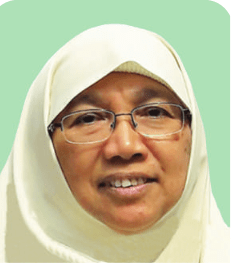
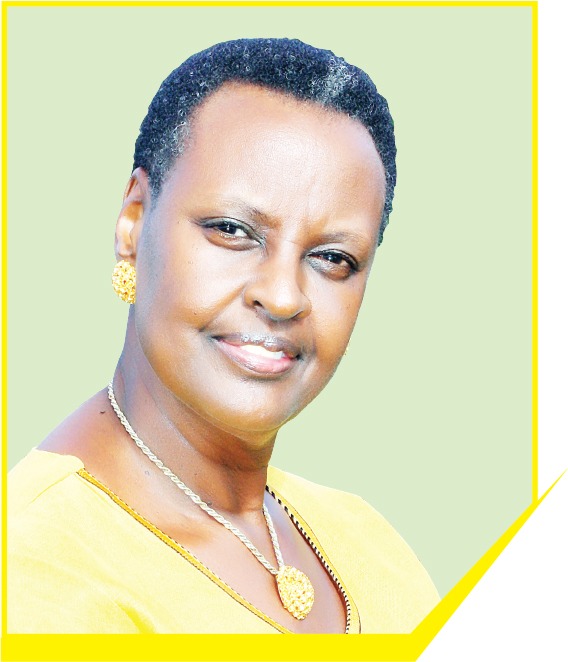
The First Lady & Minister of Education and Sports
Our esteemed Delegates
Uganda’s National Curriculum Development Centre (NCDC) has organized the first international curriculum conference to celebrate its 50th anniversary. The conference aims to reconceptualize the curriculum for the 21st century to promote socio-economic development. Uganda, like other African countries, has signed various international declarations that emphasize access to quality education and skills development. The implementation of these declarations in Uganda has been done through the Uganda Vision ‘2040 and the National Development Plan (NDP) III, which emphasize human capital development.
A good curriculum is essential for human capital development; therefore, it is necessary to examine and foster the country’s curricula. The curriculum is viewed as a vehicle for the philosophy and national goals of any country, as it guides the knowledge, skills, and values to be imparted to learners. The conference is timely, given the challenges facing most countries, such as unemployment, environmental degradation, climate change, pandemics, and the demand for 21st-century skills.
The focus of the conference should be on the long-term goals of education for respective countries. At the end of the conference, each participant is expected to have insights into what can work best for their education system and advocate for the implementation of proposed solutions for the good of future generations.

